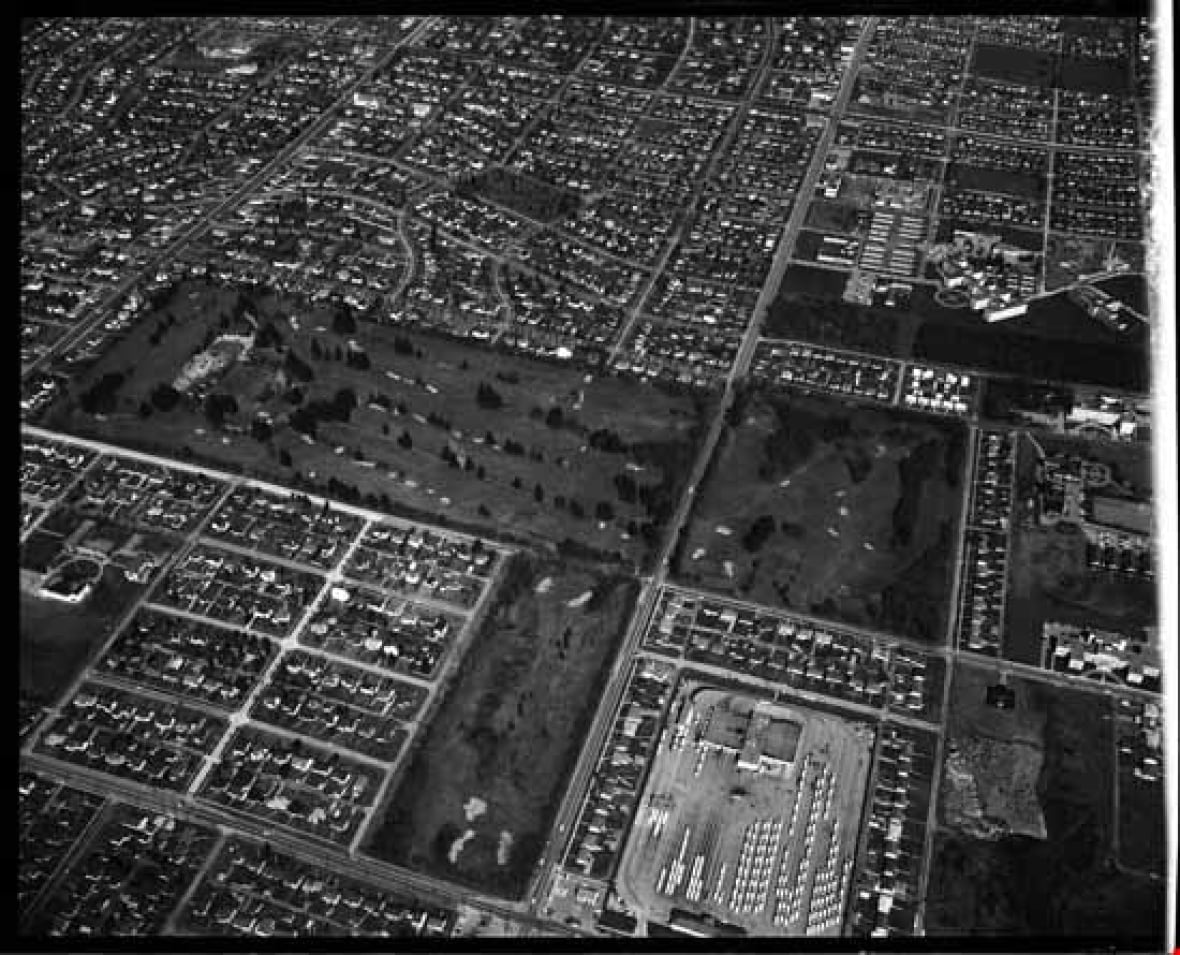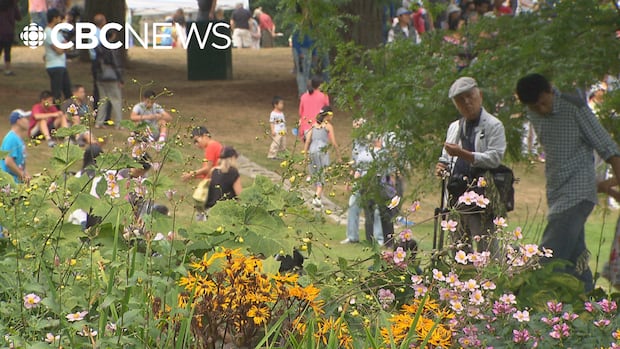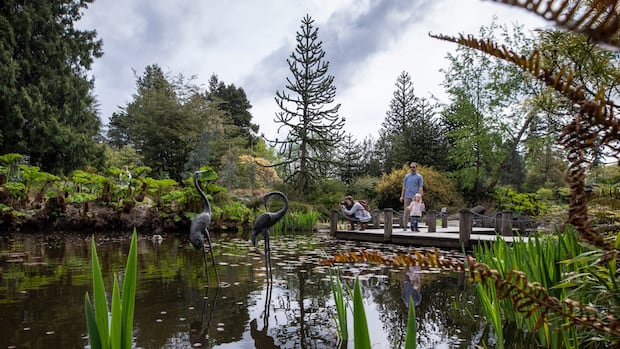From golf greens to a stunning botanical garden, VanDusen Botanical Garden is celebrating its 50th anniversary Saturday with a celebration.
The 55-acre garden, which is open to the public, is home to more than 7,500 plant species and varieties from around the world, according to Emily Schultz, acting garden director at VanDusen.
“It’s a really big milestone,” Schultz said.
Schultz said the history of the garden started with the Musqueam, Squamish and Tsleil-Waututh peoples who stewarded the land.
Then, in the 1900s, Canadian Pacific Rail (CPR) leased the land to Shaughnessy Heights Golf Club for Vancouver’s first 18-hole golf course, according to Schultz.
 VanDusen Botanical Garden was formerly home of the Shaughnessy Heights Golf Club, Vancouver’s first 18-hole golf course. (Vancouver Public Library Archive)
VanDusen Botanical Garden was formerly home of the Shaughnessy Heights Golf Club, Vancouver’s first 18-hole golf course. (Vancouver Public Library Archive)
When the lease ended in the 1960s, there were a variety of debates about future land use.
Michael Kluckner, past president of Vancouver Historical Society, noted CPR considered developing part of the property.
“The Canadian Pacific Railway, in its way, was looking at doing a big real estate development on part of it, and maybe a park on the other part of it. And so, there came to be a community campaign.”
A group of 89 residents formed the Vancouver Botanical Gardens Association and advocated for the land to become a botanical garden, Schultz said.
WATCH | Vancouver’s VanDusen Botanical Garden turns 50: 
A walk through VanDusen Botanical Garden’s 50-year-long history
Vancouver’s VanDusen Botanical Garden is celebrating 50 years this weekend. The garden has come a long way since it opened, but it was no easy task. Our Tanushi Bhatnagar toured the garden and learned about its surprising origins.
With the help of a hefty donation from Whitford VanDusen, a local philanthropist and lumber magnate who also founded the Vancouver Foundation, the botanical garden opened to visitors Aug. 30, 1975.
“It’s just an extraordinary place,” Kluckner said. “It is so tranquil and so beautiful.”
Fifty years on, and the garden is considered one of Vancouver’s crown jewels, attracting visitors from around the world. Today it’s operated by the Vancouver Botanical Gardens Association and the Vancouver Park Board.
“It’s an oasis in the middle of the city,” Schultz said. “Lots of things have changed in the garden in the last 50 years, but I think our goal really remains the same, and it’s connecting the community to plants and to nature in their backyard.”
CBC News interviewed Schultz ahead of the 50-year celebration.
This interview has been edited for length and clarity.
How has the garden changed over the years?
We’ve done lots of different improvements and renovations. The most recent is the learning garden, and it’s where people can really get their hands dirty. We’ve got lots of camps and educational programs where folks can actually get their hands in the dirt and not just look at the plant collections in the garden.
What has stayed the same?
Lots of the areas in the garden today were part of the original development plan, as well as areas like the formal Rose Garden, Rhododendron Walk, the hedge maze, which is super popular for families — those have all existed since 1975.
A lot of the beautiful lakes, such as Livingstone Lake, were also part of the original plan. So trees have changed and obviously grown. If you look at historical photos, you’ll see more mountains and more skies. Everything’s kind of grown in the last 50 years, but a lot of it remains the same.
How are you celebrating?
We’ve got a big event planned for Saturday. We’re recognizing a lot of the contributors to the garden, such as the volunteers, the membership group, and our partner, the Vancouver Botanical Gardens Association. We have lots of our horticulture groups on site, live entertainment and learning zones — lots of fun for the whole family.
What do you think the future holds for the garden?
I think we’re looking forward to continuing to connect the community to plants, to nature, and becoming an area where people can learn and be educated about the importance of biodiversity, of pollinators and climate change.
These topics are so important today and we really want to be a place where people can learn and come away with action items.

